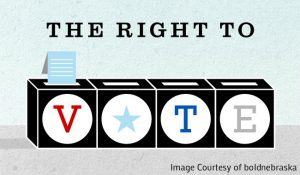 VICTOR WALLIS, zendive[at]aol.com
VICTOR WALLIS, zendive[at]aol.com
Wallis is managing editor of the journal Socialism and Democracy and just wrote the piece “On the Stealing of U.S. Elections,” which states: “The theft of elections is typically thought of as referring to corruption of the voting process. This is indeed a major issue, but it is only the culmination of a much broader set of restrictions on the power of citizens to choose their leaders.
“An extraordinary feature of the U.S. electoral process is that the two dominant parties collude to dictate — via their own bipartisan ‘commission’ — who is allowed to participate in the officially recognized presidential debates. Needless to say, the two parties set impossible barriers to the participation of any candidates other than their own. Most potential voters are thereby prevented from acquainting themselves with alternatives to the dominant consensus.
“This practice has taken on glaring proportions in the 2016 campaign, which has been marked by justified public distrust of both the dominant-party tickets. Preventing election-theft would initially require breaking up the bipartisan stranglehold over who can access the tens of millions of voters.
“Another distinctive U.S. trait is the absence of any constitutional guarantee of the right to vote. Instead, a multiplicity of state laws govern voter-eligibility, as well as ballot-access. A few states set ballot-access requirements so high as to effectively disqualify their residents from supporting otherwise viable national candidacies. As for voter-eligibility, it is deliberately narrowed through the time-honored practice of using ‘states’ rights’ to impose racist agendas. Most states deny voting rights to ex-convicts, a practice that currently disenfranchises some six million citizens, disproportionately from communities of color. More recently, targeting the same constituencies, many states have passed onerous and unnecessary voter-ID laws.
“The role of money in filtering out viable candidacies is well known. It was reinforced by the Supreme Court’s Citizens United decision of 2010, which opened the gate to unlimited corporate contributions.”